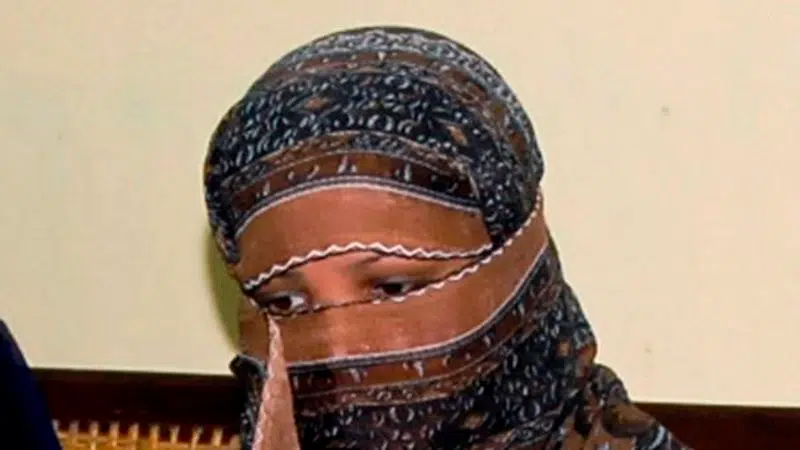
Pakistani woman acquitted of blasphemy headed to Canada
ISLAMABAD — A Christian woman acquitted of blasphemy after spending eight years on death row in Pakistan, but who still faced death threats from Islamic extremists upon her release, flew to Canada on Wednesday to join her daughters, Pakistani officials and others involved in the case said.
Aasia Bibi was convicted of blasphemy in 2009 after a quarrel with two fellow farmworkers, who refused to drink from the same water container as a Christian. Five days later, the women said Bibi had insulted Islam, a crime punishable by death. Bibi was charged with blasphemy despite repeatedly denying the accusation. The Supreme Court overturned her conviction last year, and she had been in protective custody since then.
Islamic extremists have rioted over the case and threatened to kill Bibi. Even as word of her departure from Pakistan became known, the hard-line Tehree-e-Labbaik Party, whose single-point agenda is defending the controversial blasphemy law, threatened protests. The same party, whose leaders including firebrand cleric Khadim Hussain Rizvi are in jail, also urged the overthrow of the government following Bibi’s acquittal. Rizvi’s bail hearing is May 13.

